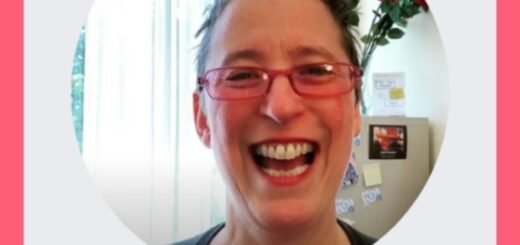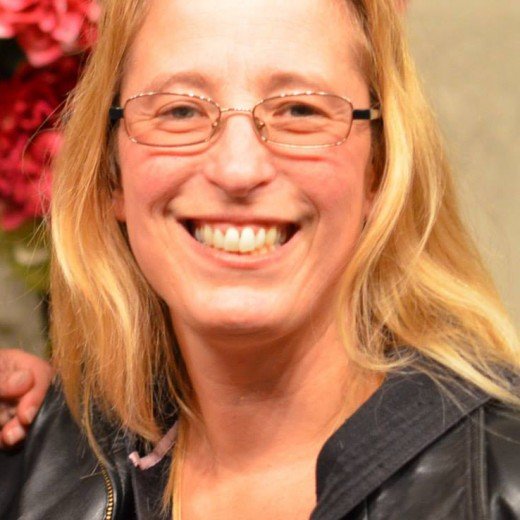Why Does It Feel So Bad to Finish Your Book? by Beth Barany
 Why Does It Feel So Bad to Finish Your Book?
Why Does It Feel So Bad to Finish Your Book?
The itchy and scratchy of finishing a book and bringing it out…
When I am about to finish a book, whether I’m finishing the first draft, the final draft, or I’m about to publish my book, I get anxious, worried, even grouchy.
I noticed this in my clients too.
I was mentioning this to a friend and fellow NLP practitioner and he reminded me how every project completion (or stage completion) includes feelings of anger and grief.
Do you notice this in your own life?
How does it feel when you’re about to finish your book?
Some people will even create a way to extend the project and never finish, because facing the end of the project calls up feelings that are difficult to handle but entirely appropriate: anger, sadness, worry, grief.
Entirely appropriate emotional states, feelings, experiences.
My friend explained it this way: When we’re working on a project (like finishing a book) we have expectations and hopes about how it will turn out. But then when we finish the project, we know how it’s turned out. We just experienced it. So hope is gone, and reality is in its place.
Our hopes have been dashed. And hope feels good, really good. It’s probably the best feeling state we human experience.
So without hope, we feel angry, cranky, itchy and scratchy.
And that’s OK. And makes total sense.
If we have put a lot of hopes and dreams into our book, and then we complete the first draft, or the final draft, or truly finish your book, or hit the publish button, those hopes and dreams are now realities. And maybe we like the outcome. Maybe we don’t.
I don’t know about you, but most of the time reality doesn’t match my hopes and dreams — my expectations. So we feel sad or cranky. Totally normal. Totally OK.
But what if you were in the middle of a project, and you want to manage your expectations, so that you won’t go through such a dip of anger and anxiety, what do you do?
I have my ways that I’ll share here. Perhaps you have a few coping mechanisms too that help you manage your expectations about the outcomes of your creative projects. You can use these three steps at the start of a project, in the middle, as you’re finishing, or after you’ve completed your project.
#1: HOPES AND DREAMS
I get clear about my hopes and dreams for the book and I write them down. I check to see how realistic they are. Where are they on the scale of fantasy versus reality?
#2: GET FEEDBACK
I celebrate my big dreams and I ask for clarity from friends and those who love me to see how far out I am. I can’t always tell 🙂
#3: FEEL THE FEELS
I allow experience of my emotions, anger, the angst, the worry, that itchy and scratchy. It’s all OK. We humans are wired this way, so breathe.
YOUR TURN
How do you cope with the end of the project? I’d love to hear, post in the comments below. And thanks!
***
Resource: The friend I reference in this article is also my nonfiction editor, NLP Master Practitioner, Jon Low. More about him and how he helps people here.
***
ABOUT BETH
 Hi! I’m Beth Barany, an award-winning novelist, master neurolinguistic programming practitioner, experienced writing teacher, and certified creativity coach for writers.
Hi! I’m Beth Barany, an award-winning novelist, master neurolinguistic programming practitioner, experienced writing teacher, and certified creativity coach for writers.
Through my online school, programs, workshops and consultations, I specialize in helping writers experience clarity, so they can write, revise, and proudly publish their novels to the delight of their readers.
All my courses are packed with useful hands-on information that you can implement right away. You can check out my free course “Writer Discovery Mini-Course” here.
Any questions? Just ask.







It’s a nice coincidence to see this post today. I just finished not a book but a story yesterday, got it in to the website by deadline and would think I would feel, if not exhileration, at least relief. But I’m feeling more the feelings you describe above. I don’t have any tips or advice, and this isn’t always my experience on completing a project. But it’s nice to hear some confirmation that this can be a normal process of completing a writing project.
Seana, So glad it confirms your experience. Congrats on finishing a story. It is a normal process and can be survived. 🙂
Great article, thank you! <3 I'm nearing the end of my first draft and feeling incredibly anxious about it!
I finished my first novel (ahem…first draft of one!) in June of this year, and I felt all of the emotions you mentioned in your post.
To me, it felt like my book was a child. Now that the first draft was done and waiting for the edits from my editor, I felt like I was abandoning my child. I would never want to do that to a human child — or book child either! For three months, this draft had been the only thing I did in my free time while I abandoned my house stuff every evening after I got home from work. Some schools of thought would say to write something the very next day and never stop. Others said I need a break (and I felt like my house was saying the same thing!). So I started taking care of my house each day while I waited for the edits.
My edits have now come back but I haven’t touched them yet — I’ve enrolled in a writing course that will help me a lot, so I’m waiting for that. My house projects have not all been completed yet, but that’s okay. It was helpful to give myself permission to play in or with something other than a manuscript.
Some of your readers may be helped to know that finishing a writing project can be likened to being all excited for Hanukkah or Christmas, then feeling all depressed when it is over with. Certainly grief plays a part here.
Thank you for your excellent post!
Christopher, I so know how you feel! Thanks for stopping by!
Thank you, Debbie! Glad the post could help in the grieving process. I bet your house is clean now, until the next stage of working on your book!
I think something else that goes under-reported, as a *tangential* (and not primary) source of feeling bad, is that writers become attached to their characters and Story World. I think we have a desire to know, “in real life”, our characters, to talk to them and hang with them and even lean on them in the ways that characters in the book can lean on them. We wouldn’t have written them a certain way if we didn’t enjoy seeing those qualities in a person (our good characters, I mean).
I think when we’re done writing a book, the reality that we’ll never really know these people in real life sets in and brings on a little sadness. While we’re creating them, we’re “involved” with them. Once they’re fully written and packaged for release, our involvement wanes. I think we miss them. I still remember that on the 20th anniv. of the HP books, Rowling tweeted something to the effect of, “20 years ago, people got to know the characters I had been living with…” Of all the things she could have tweeted (life-changing, etc.), she talked about “living with the characters”.
Speaking generally (and not about Rowling), I think there’s just a hint of “depressing” that peppers finishing a book and knowing you can’t actually sit down with your protagonist and talk. I think this can be exacerbated when you write sci-fi, fantasy, historical fiction, and any book that requires you to build a world different from your own. You may hear your favorite song and know your characters could technically never hear it in their world. You may feel that much more distance from your characters. And so forth. You want to be able to relate to them, and you can’t, even that much more for the different world.
Again, I believe the *primary* reasons are more of the things others have said–project over, anticipation over, letdown if book not what expected, etc. Just offering the above as a secondary or even tertiary tier of post-book melancholy.
Thanks for your reflection, Deborah. I appreciate it. As a fantasy writer, I know the feeling of being deeply connected to my characters and world.